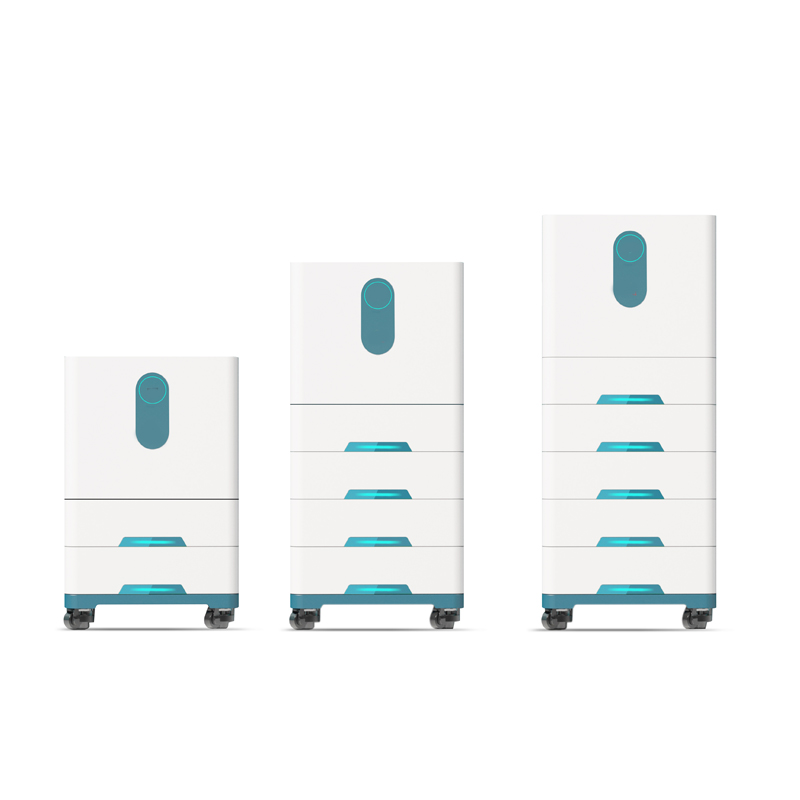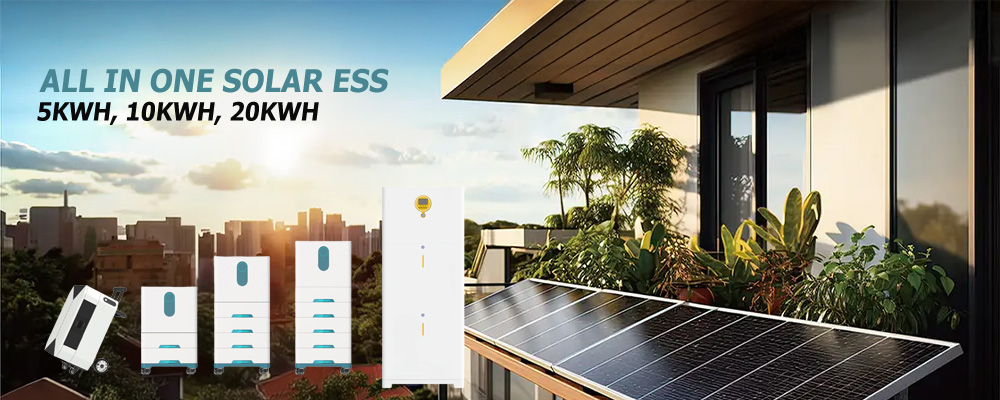As more homeowners turn to solar energy to reduce their electricity bills and environmental impact, home energy storage systems are becoming a vital component of solar setups. These systems allow homeowners to store excess energy produced by their solar panels for later use. With the right solar battery for house, a home solar battery, or a solar battery for house, you can increase your home's energy independence, save on utility bills, and ensure you have reliable power during outages. In this article, we will explore the common types of battery storage systems for home use, how they work, and which solar battery for house is the best for your needs.
What is a Home Energy Storage System?
A Home Energy Storage System is a system that stores electricity for later use. Typically, this system stores excess energy produced by solar panels during sunny days when the solar system produces more energy than needed. The stored energy can then be used during the evening or cloudy days when the solar panels are not producing enough electricity.
The heart of any Home Energy Storage System is the solar battery for house. This system stores the excess energy in batteries that can then be drawn upon when necessary. Installing a solar battery for house allows homeowners to optimize the use of their renewable energy, reducing reliance on the grid and improving energy efficiency. By incorporating a solar battery for house, you can ensure that your home continues to benefit from solar energy even during times when sunlight is limited.
Types of Solar Battery Storage Systems for Home Use
There are several types of battery storage systems designed specifically for residential use. Each type comes with its own set of features and benefits. Below, we’ll break down the most common types of solar battery for house options available today.
1. Lithium-Ion Battery Storage Systems
Lithium-ion batteries are the most popular choice for residential solar battery storage systems. These batteries are known for their efficiency, longer lifespan, and relatively compact size. They are commonly used in home energy storage systems due to their excellent performance and ability to store large amounts of energy.
Advantages of Lithium-Ion Batteries:
· Longer Lifespan: Lithium-ion batteries typically last between 10 to 15 years.
· Efficient Charging: They offer quick charge and discharge times, ensuring that you get the maximum use out of your home solar battery.
· Compact and Space-Saving: These batteries are lightweight and take up less space compared to other types of batteries.
2. Lead-Acid Battery Storage Systems
Lead-acid batteries have been around for a long time and are often seen as a more affordable option compared to lithium-ion batteries. They are commonly used in off-grid systems and have a proven track record of reliability.
Advantages of Lead-Acid Batteries:
· Cost-Effective: Lead-acid batteries are generally less expensive upfront compared to solar battery storage systems using lithium-ion technology.
· Proven Reliability: They have been used for many years in various applications, including solar systems.
· Available in Different Sizes: Lead-acid batteries come in a range of sizes, making them suitable for homes with different energy storage needs.
3. Saltwater Battery Storage Systems
Saltwater batteries are a newer technology that offers an environmentally friendly option for home energy storage. These batteries use saltwater as an electrolyte, making them safer and more sustainable compared to traditional lithium-ion or lead-acid batteries.
Advantages of Saltwater Batteries:
· Eco-Friendly: Saltwater batteries use non-toxic materials and are a greener option compared to traditional batteries.
· Safer: These batteries are safer and less prone to overheating or fire risks, which can sometimes occur with other types of batteries.
· Long Lifespan: Like lithium-ion batteries, saltwater batteries have a relatively long lifespan.
4. Flow Battery Storage Systems
Flow batteries are a type of house battery storage that uses two electrolyte solutions, which flow through a cell to generate electricity. These batteries are suitable for larger homes or commercial properties due to their scalability and long storage life.
Advantages of Flow Batteries:
· Scalability: Flow batteries can be expanded as needed, making them suitable for homes with higher energy demands.
· Long Duration: These batteries can discharge energy over a longer period, making them ideal for extended outages or off-grid situations.
· Long Cycle Life: Flow batteries last longer than other battery types, with a cycle life of 10,000 to 15,000 cycles.
5. Hybrid Battery Storage Systems
Hybrid solar battery storage systems combine the benefits of both solar battery for house and grid-connected systems. These systems store excess energy while also being able to pull from the grid when necessary. Hybrid systems allow homeowners to manage energy use more efficiently by balancing between stored energy and grid-supplied power.
Advantages of Hybrid Systems:
· Greater Flexibility: Hybrid systems offer more control over energy usage by allowing you to tap into both your home solar battery and the grid as needed.
· Grid Backup: If the battery runs out of power, the system can automatically switch to the grid, ensuring an uninterrupted power supply.
· Optimized Energy Use: Hybrid systems allow you to maximize the use of stored solar energy while minimizing reliance on the grid.
Which Solar Battery Storage System is Right for You?
The right solar battery for house will depend on your energy needs, budget, and the size of your home. If you’re looking for an efficient, long-lasting battery that fits into a compact space, a lithium-ion battery may be your best option. However, if you’re on a budget, a lead-acid battery could be a more cost-effective solution. For environmentally-conscious homeowners, saltwater batteries provide a greener alternative.
For larger homes with higher energy needs, a flow battery storage system might be the most suitable option, offering scalability and longer storage durations. If you want the flexibility of both solar energy storage and grid backup, then a hybrid system might be the ideal choice.
Conclusion: Should You Invest in a Solar Battery Storage System?
In conclusion, investing in a Home Energy Storage System can significantly benefit homeowners looking to optimize their energy usage, reduce reliance on the grid, and lower electricity costs. The various solar battery storage system options, such as lithium-ion batteries, lead-acid batteries, and flow batteries, offer different benefits depending on your specific needs and budget.
When choosing the right solar battery for house, it’s important to consider factors like energy requirements, system size, installation costs, and environmental impact. With a reliable home solar battery, you can store excess energy generated by your solar panels, ensuring that you have power when you need it most, while also benefiting from lower energy bills and a more sustainable lifestyle.
If you are considering a home energy storage system, leave a comment below or contact us today to learn more about the best options for your home. We can help guide you through the process of selecting the perfect solar battery storage system to meet your needs!
FAQ
1. How long do home solar batteries last?
Typically, home solar batteries last between 10 to 15 years, depending on the battery type and how well it is maintained. Lithium-ion batteries tend to have a longer lifespan than other types.
2. How much energy can a home battery store?
The amount of energy a solar battery for house can store depends on its capacity. On average, home battery systems can store anywhere from 5 kWh to 15 kWh of energy, enough to power basic appliances for several hours or even a full day.
3. Can I use a home energy storage system without solar panels?
Yes, you can use a home energy storage system without solar panels. However, without solar panels, the battery will need to be charged from the grid, reducing the overall benefits of relying on renewable energy.



